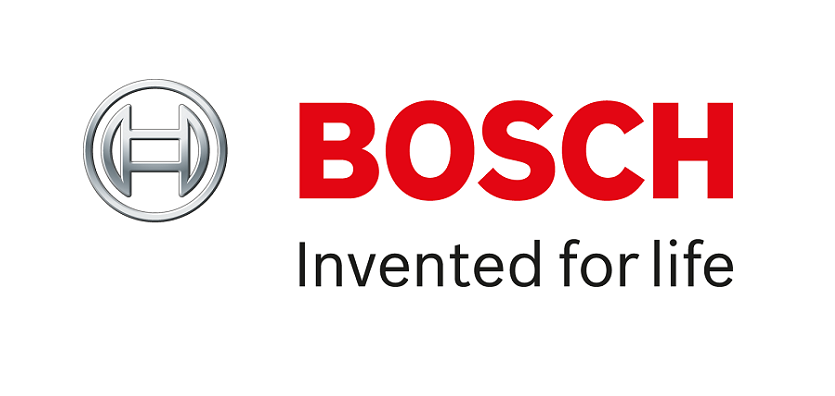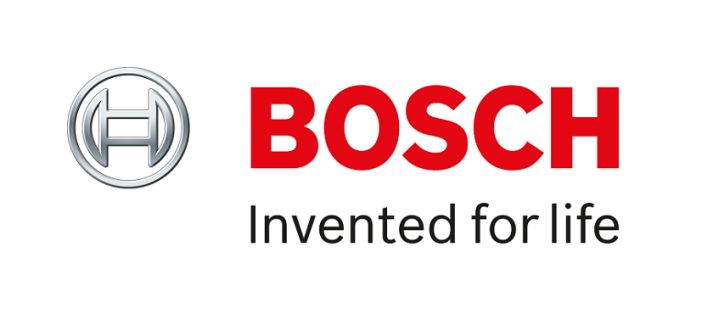
Connectivity is becoming a growth business in the region
- Third-party sales in 2017 of SGD 1.28 billion (822 million euros) in Southeast Asia and SGD 162 million (104 million euros) in Singapore
- Strong investments in regional manufacturing with the opening of Bosch’s smart factory in Thailand and expansion of facilities in Vietnam and Malaysia
- Towards a connected world: upward demand for connected solutions in Southeast Asia
- Breakthrough: diesel NOx emissions far lower than legally prescribed limits
Bosch ended its 2017 fiscal year with SGD 1.28 billion (822 million euros) in consolidated sales in Southeast Asia – a healthy increase of 6.8 percent compared to the previous year. In Singapore, the company recorded SGD 162 million (104 million euros) in sales revenue in 2017, remaining at a similar level. “2017 was a successful year for Bosch in Southeast Asia as we made great strides towards our goal of being a leading supplier in the domains of urban mobility and the Internet of Things,” said Martin Hayes, President of Bosch in Southeast Asia. “Southeast Asia is an important growth market for Bosch. The region’s strong push towards digitization is something we look forward to supporting through our connected products, solutions and services”. For the current business year, Bosch expects this momentum to continue in the region, especially as the company looks towards expanding its connected solutions in the manufacturing sector.
Regional investments grew by close to 17 percent in 2017 to SGD 226 million (145 million euros). The main focus was on the expansion of manufacturing activities in Vietnam, and enhancing automated and connected manufacturing capabilities in Malaysia and Thailand.
Accelerating smart connectivity efforts in the region
At present, Bosch has already introduced several products and solutions in the region that show its expertise in the broad field of the Internet of Things (IoT). Bosch sees strong interest particularly in commercial building projects. Bosch Software Innovations, the company’s software solutions subsidiary with a development centre in Singapore recently launched the Bosch IoT Suite Portal and Developer Console. These platforms are the backbone in helping developers make buildings connected, easy to maintain and energy efficient. Data such as indoor air quality parameters, elevator or light monitoring can be easily gathered with Bosch sensors.
Connectivity also makes relevant system data quick and easy to access. For example, the company’s Thermotechnology division introduced the “MEC Remote” – a new IoT feature that enhances boiler accessibility, allowing users to monitor boiler’s performance at any place, any time and across different devices.
“We recognized the potential of connectivity early and have been actively shaping the connected world in Southeast Asia. Our aim in making improvements in people’s everyday lives through our expertise in hardware as well as in software now bears its fruit,” said Hayes. “Connectivity makes life safer, more convenient as well as making buildings and industries more efficient and resource conserving. We are seeing more and more new business models developing outside of traditional sectors, for example in connected manufacturing, agriculture and buildings”.
Building up a robust workforce to sustain momentum
Talent intake and development were a key priority for the business in 2017. Bosch saw a remarkable increase of 27 percent in manpower for the region to around 9,500 associates of which close to 900 are based in Singapore. Bosch’s associate development efforts were also recognised locally, with the company being ranked as one of the Best Companies to Work for in Asia by HR Asia, for the second year running. With new business developments and robust demand for connected solutions anticipated for the coming years, Bosch gives attracting, retaining and upskilling its workforce across the entire region a top priority – uniting technology expertise in both hardware and software.
Positive development across all Bosch business sectors
Overall, the business sectors of Bosch developed well and in line with the market situation across the region. The Bosch Mobility Solutions business sector ended the financial year strong with double-digit growth in Southeast Asia, driven by the expansion of production and engineering capacity especially in Malaysia, Vietnam and Thailand as well as the Automotive Aftermarket division´s expansion into the marine and offshore segment. Bosch will continue to work towards harnessing technologies for safer commutes, with the launch of Southeast Asia’s first emergency eCall service this year. In partnership with Aviva, this service will help distressed drivers seek help immediately when needed, in unforeseen circumstances such as car breakdowns or accidents.
For the Energy and Building Technology business sector, 2017 was a remarkable year as the Thermotechnology division secured key projects in the petrochemical, pharmaceutical and food industry. Meanwhile, the Building Technology division equipped key infrastructures and commercial venues across the region with video systems, access control and intrusion alarm as the main drivers of growth.
The Industrial Technology business sector experienced double-digit growth driven through positive developments in packaging technologies for food manufacturing and confectionery industries. Apart from placing a strong focus on increasing market penetration, project development, consultancy and support, the Drive and Control Technology division also is ramping up support in the areas of factory automation and advanced manufacturing or Industry 4.0 in Southeast Asia.
The Consumer Goods business sector made good progress in 2017 in its strive to focus on growing business opportunities and offerings across its entire product portfolio while continuing to evolve with the digitization of the user ecosystem.
Bosch Group: Global strategy and business outlook for 2018
Bosch is aiming for further growth in 2018, despite the difficult economic climate. After achieving record results in 2017, and in light of economic and geopolitical risks, the Bosch Group expects its sales revenue to grow by 2 to 3 percent in 2018. In the first three months, the sales revenue generated by the company matched the high level of the same period of the previous year, and even increased by around 5 percent when adjusted for exchange-rate effects. “Our company is unequaled when it comes to combining comprehensive connectivity expertise with broad industry and product know-how. This is the Bosch Group’s unique selling proposition”, said the Bosch CEO Dr. Volkmar Denner, speaking at the annual press conference in Renningen. Denner sees improving the quality of life and contributing to eco- and climate-friendliness at the top of Bosch’s agenda: “Our ‘Invented for life’ ethos is our motivation for developing the best possible technologies for environmental protection. We want to help keep people mobile, while improving air quality”. To make practically zero-emissions traffic reality, the company is making heavy investments – both in making electromobility a market success and in enhancing the combustion engine.
Bosch has now achieved a breakthrough in diesel technology: with their new diesel technology, Bosch engineers have succeeded in getting NOx emissions down to one-tenth of the legally permitted limit. On average, test vehicles equipped with the enhanced technology already emit no more than 13 milligrams of NOx per kilometer, or far less than the 120 milligrams that will be permitted after 2020. “There’s a future for diesel. It will remain integral to tomorrow’s mobility solutions,” the Bosch CEO said. [More detailed information on these technological advances can be found here.]
Bosch in Southeast Asia and Singapore
Robert Bosch (South East Asia) Pte Ltd is a regional subsidiary of the Bosch Group, representing the Group’s interests in Southeast Asia, where it is present in all ASEAN member countries. Business operations in these countries report to Robert Bosch (SEA) Pte Ltd, located in Singapore. In fiscal 2017, the company generated SGD 162 million in sales in Singapore. As of 31 December 2017, the regional headquarters employed 897 associates. Bosch has been in Singapore since 1923, with diversified businesses in Automotive Aftermarket, Power Tools, Security Systems, Drive and Control Technology, Packaging Technology, Thermotechnology, as well as Software and Systems Solutions. The Asia Pacific headquarters for its Automotive Aftermarket, Building Technology and Bosch Software Innovations businesses, as well as operations for Corporate Research and Advance Engineering, and Information Technology, are part of Robert Bosch (SEA) Pte Ltd. Additional Information can be accessed at www.bosch.com.sg, www.linkedin.com/company/bosch-singapore and www.facebook.com/BoschSingapore
About Bosch Group
The Bosch Group is a leading global supplier of technology and services. It employs roughly 402,000 associates worldwide (as of December 31, 2017). The company generated sales of 78.1 billion euros in 2017. Its operations are divided into four business sectors: Mobility Solutions, Industrial Technology, Consumer Goods, and Energy and Building Technology. As a leading IoT company, Bosch offers innovative solutions for smart homes, smart cities, connected mobility, and connected manufacturing. It uses its expertise in sensor technology, software, and services, as well as its own IoT cloud, to offer its customers connected, cross-domain solutions from a single source. The Bosch Group’s strategic objective is to deliver innovations for a connected life. Bosch improves quality of life worldwide with products and services that are innovative and spark enthusiasm. In short, Bosch creates technology that is “Invented for life.” The Bosch Group comprises Robert Bosch GmbH and its roughly 440 subsidiary and regional companies in 60 countries. Including sales and service partners, Bosch’s global manufacturing, engineering, and sales network covers nearly every country in the world. The basis for the company’s future growth is its innovative strength. At 125 locations across the globe, Bosch employs some 64,500 associates in research and development.
Additional information is available online at www.bosch.com, www.iot.bosch.com, www.bosch-press.com, www.twitter.com/BoschPresse.





